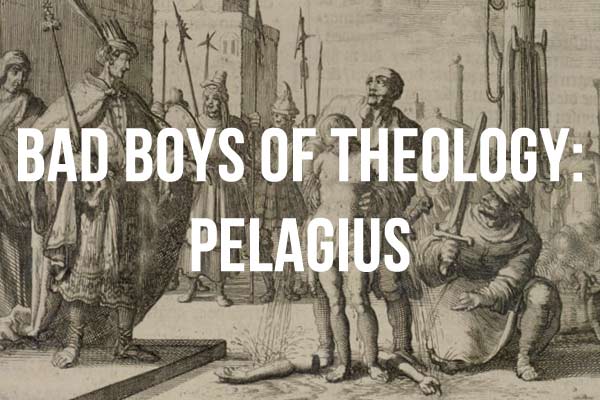The Pelagian cults - by which I mean primarily the Church of Rome, the Mormons, Jehovah's Witnesses, and Oneness Pentecostals - hate the doctrine of salvation by free grace, apart from works. They hate it because it liberates the believer from dependency on their organizational hierarchy. However, their stated reason for opposing it is that it supposedly results in antinomianism, a freedom to sin without the expectation of spiritual consequences.
They will always cite in this regard James 2:24: "You see that a person is justified by works and not by faith alone." I have addressed their perversion of that verse here. Mormonism even makes it more explicit in their own scriptures (Doctrine and Covenants 76:52): "That by keeping the commandments they might be washed and cleansed from
all their sins, and receive the Holy Spirit by the laying on of the
hands of him who is ordained and sealed unto this power."
However, the truth is the opposite of their assertion. True good works can only be the result of free grace. That is because the natural man is incapable of doing meritorious works: "No one does good, not even one" (Romans 3:12). The Pelagian puts the effect for the cause, and thus puts the supposed righteousness of the sinner in the place of the real righteousness of Christ (Mark 10:18), which is imputed to the repentant sinner by grace through faith alone, to make him righteous (II Corinthians 5:21). In other words, by teaching a doctrine of salvation that is impossible, the Pelagian blocks men from knowing true salvation! Surely there can be no greater sin (Matthew 23:13).
Nineteenth-Century Presbyterian theologian James Henley Thornwell explains the difference: "A penitent sinner is one who has been a transgressor, but is now just; the laws of God are now put within his mind and written on his heart, and his moral condition is evidently one which renders the supposition of punishment incongruous and contradictory. Such a man is as unfit for the atmosphere of Hell as an impenitent transgressor is unfit for the atmosphere of Heaven. There is obviously, therefore, no principle of reason or nature, as there is, unquestionably, none of revelation, which teaches that a man may be penitent and [yet] perish - that he may be driven into final punishment with the love of God in his heart and the praise of God upon his tongue" ("The Necessity and Nature of Christianity").
He is expressing the same idea that God does in Ezekiel 33:12: "The righteousness of the righteous shall not deliver him when he
transgresses, and as for the wickedness of the wicked, he shall not fall
by it when he turns from his wickedness, and the righteous shall not be
able to live by his righteousness when he sins."
Wednesday, April 17, 2019
Free Grace Justification versus the Cults
Subscribe to:
Post Comments (Atom)



No comments:
Post a Comment